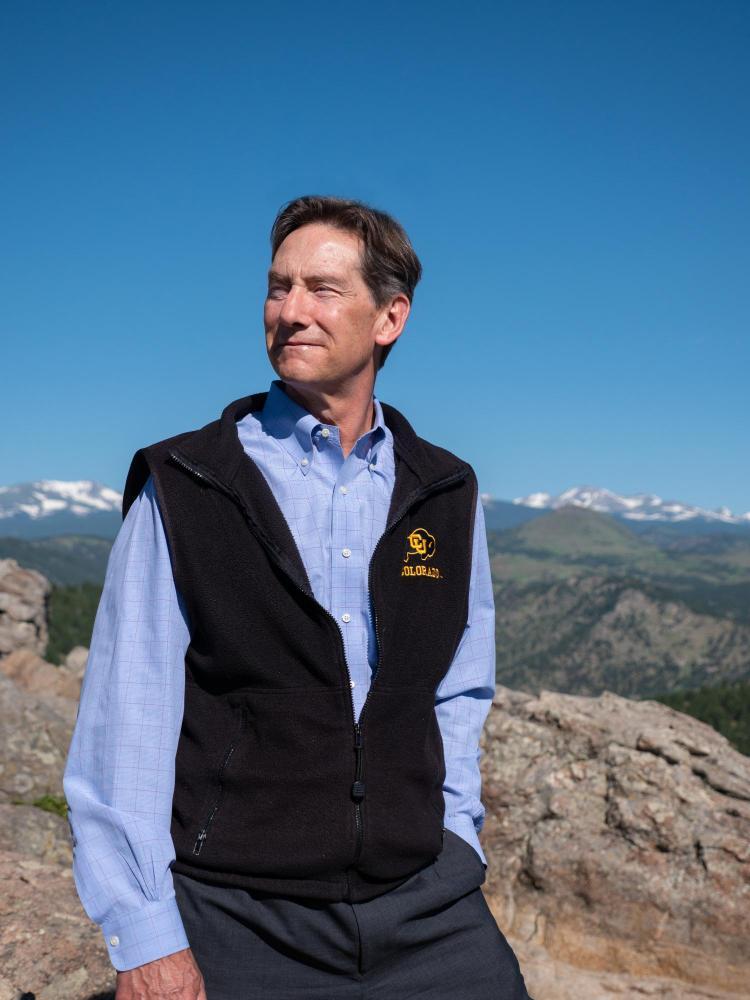A win-win proposition for longtime faculty

James W.C. White, interim dean of the college, soaks up the scenery in the foothills above Boulder.
When two young faculty members bought their home in Boulder decades ago, the city and its university were smaller and housing was much cheaper. Growth since then has been a double-edged sword:
Their home’s market value has soared, but so has their potential tax burden.
As the couple eyed retirement, they sought to make a planned gift to the University of Colorado Boulder, both because it will support the university and because it makes financial sense for them. They will do this through a financial mechanism called a “charitable remainder unitrust” (or CRUT), which can benefit both the university and the donor.
The couple needed some additional income as they aged, but selling their home outright would have generated a very large capital-gains tax bill.
Additionally, they wanted to support the university beyond what they could muster through an outright donation of cash.
For them, the right choice was a CRUT, a form of planned giving that can help meet the educational needs of tomorrow while helping longtime faculty members today.
Under such an arrangement, donors receive a lifetime stream of income and substantial tax advantages—avoiding capital gains taxes while gaining a charitable gift income tax deduction. The stream of income, which is adjusted annually by the current value of the investment, is a lifelong resource.
We’ve had very good careers at CU, and we feel grateful."
Afterwards, the CRUT, which can be directed toward scholarships, a department, your favorite college, or any other strategic priority the donors choose, provides an assurance that the university of tomorrow will benefit from the generosity of today.
Given the boom in real-estate prices, the effects of such giving can be significant. Colorado’s population has nearly tripled since 1970, and the growth has propelled real-estate prices, particularly for owners who’ve held property for decades. That trend has been particularly pronounced in highly desirable places like Boulder. One faculty member put it this way:
Boulder is a nice town, but the university has been a major factor in the city’s soaring housing prices. From that perspective, a homeowner whose property value has increased by, say, a factor of 10, reaps that benefit largely because of the university.
The faculty member likened the rising home values to “funny money,” adding: “You didn’t do a thing to earn it; in fact, the people who really earned it are in some sense the university, so they ought to share it.”
While there are practical reasons the couple planned this gift, it is important to note that their motivations are genuinely philanthropic: “We’ve had very good careers at CU, and we feel grateful.”
Other members of the faculty or staff may find themselves at a similar juncture in life. At that time, I hope they consider following the example of the faculty members I’ve cited here. It’s never been easier to employ a financial tool to transform personal realty into educational reality.
Please consider joining your colleagues who have chosen to do good for the university while also providing for their own needs. It’s a legacy all of us can be proud of and thankful for.
James W.C. White is interim dean of the College of Arts and Sciences.
Contact the Gift Planning Office today:
Call 303-541-1229 or Email giftplanning@cu.edu

